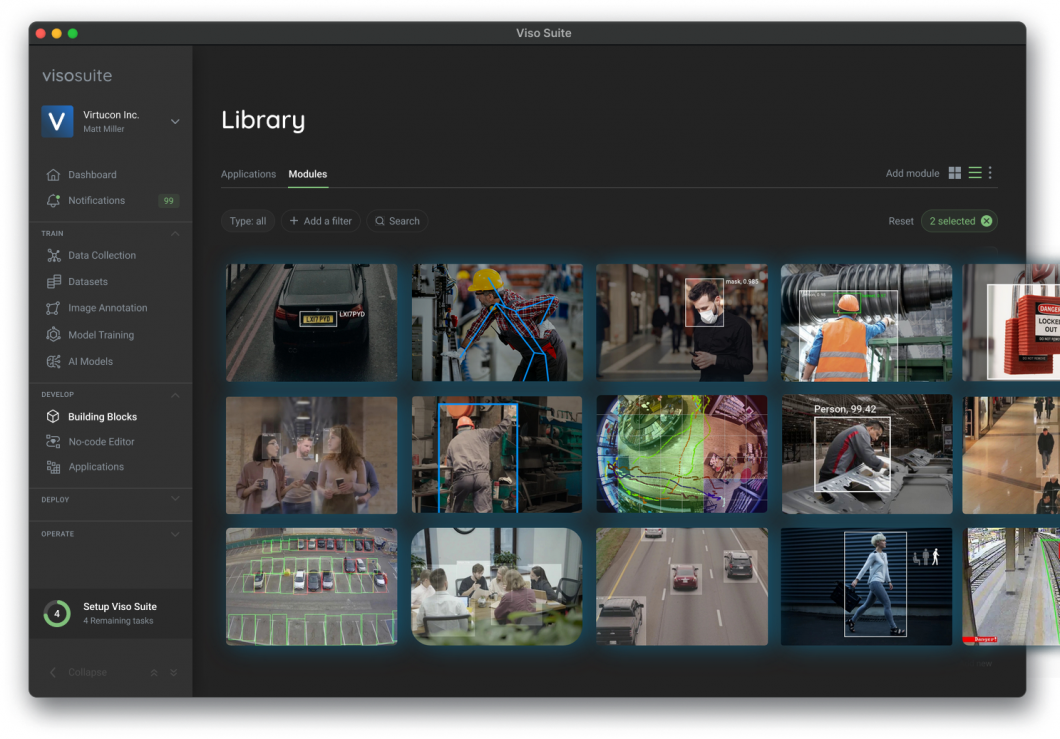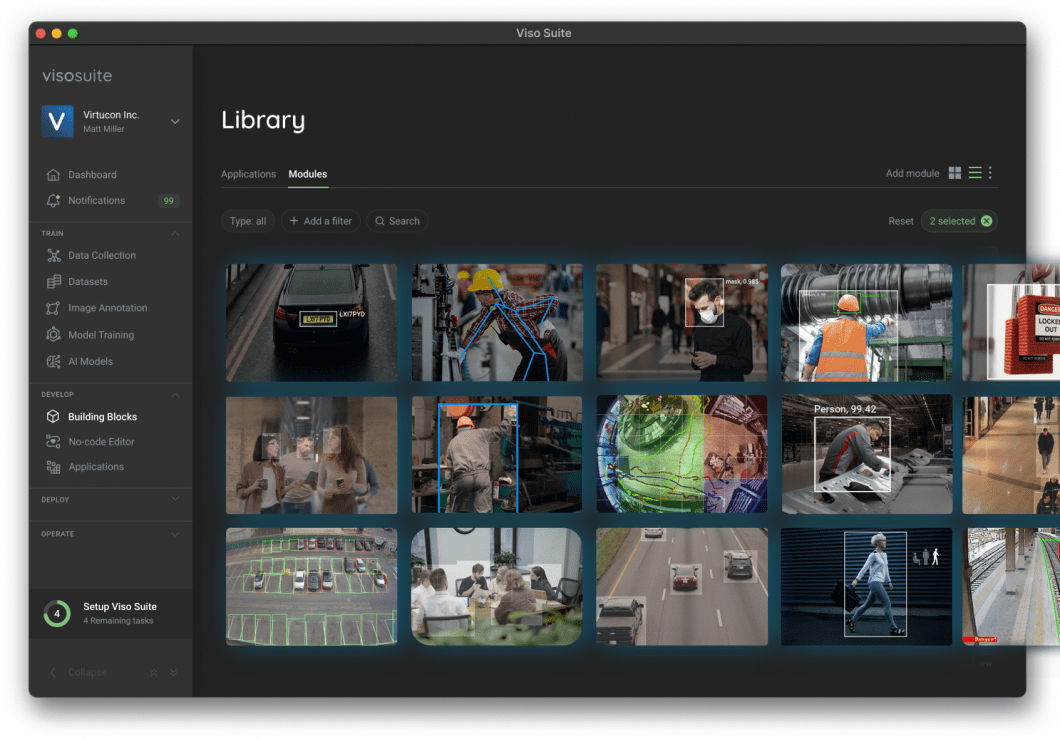Augmented actuality (AR) and digital actuality (VR) rework how we work together with the skin world. Even with participating immersive narratives and interactive experiences, the magic is created behind the scenes by the intricate coordination of cutting-edge applied sciences.
Laptop imaginative and prescient is a important driver, quietly however forcefully directing the sleek transition between the digital and actual worlds. On this article, we stroll you thru the main points of pc imaginative and prescient in combined actuality:
- Fundamentals of AR/VR and important methods
- Challenges it’s best to know
- Necessary real-world purposes
- The most effective open-source initiatives
- High AI imaginative and prescient traits for AR and VR
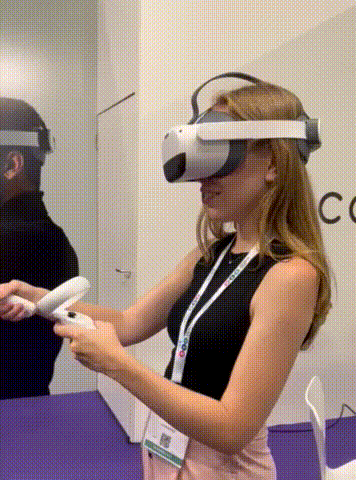
Fundamentals of Laptop Imaginative and prescient in AR and VR
Understanding, analyzing, and robotically extracting information from digital photographs and movies is the main target of the Synthetic Intelligence (AI) subfield often called Laptop Imaginative and prescient. Our interactions with the atmosphere are being profoundly modified by Augmented actuality (AR) and Digital actuality (VR). And each of these immersive applied sciences rely largely on pc imaginative and prescient.
Laptop Imaginative and prescient (CV) is a basic constructing block that may rework industries and improve on a regular basis encounters. The VR and AR know-how creates a seamless, immersive expertise. CV does this by bridging the hole between the digital and bodily worlds.
In Augmented Actuality (AR), pc imaginative and prescient is used for:
- Object detection is used to acknowledge objects in visible information
- Object monitoring is used to grasp motion, rely folks and objects
- Simultaneous localization and mapping (SLAM) allows robots to localize themselves on a map
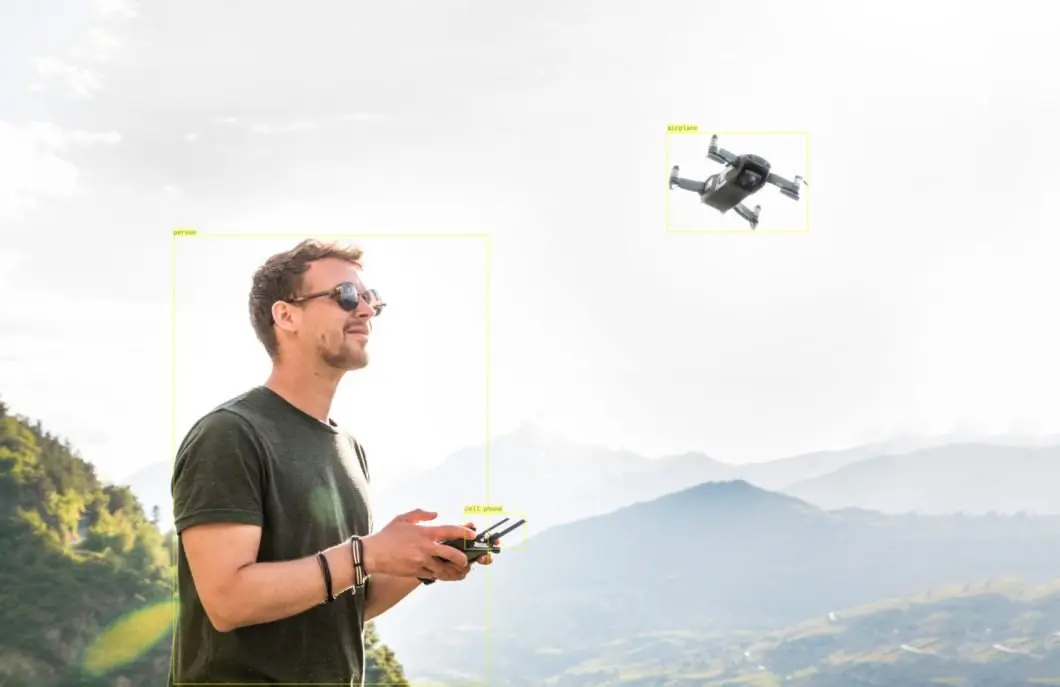
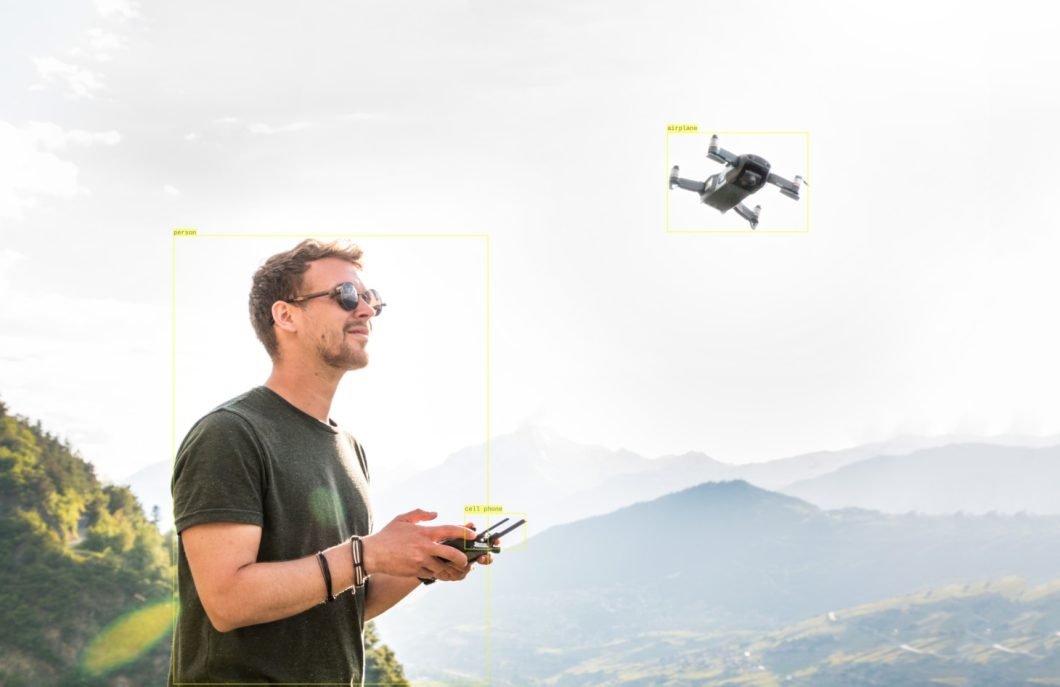
In Digital Actuality (VR), Laptop Imaginative and prescient is used for:
- Hand pose estimation and gesture monitoring
- Eye-tracking and gaze recognition
- Room mapping and point-cloud methods
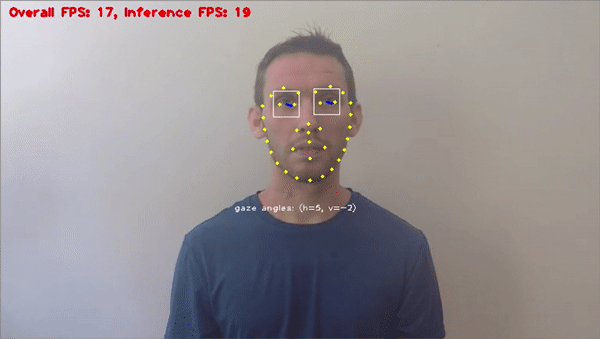


Superior Monitoring and Spatial Mapping
For easy and immersive AR/VR experiences, exact monitoring and spatial mapping are important. These applied sciences make it attainable to acknowledge objects’ form, location, and orientation in a 3D area. This data is used to create numerous augmented and digital actuality purposes. Examples embrace:
- Exact Object Placement. Digital objects will be precisely positioned and anchored in the true world, enabling reasonable interactions and occlusion results.
- Pure Navigation. Customers can transfer via digital environments or manipulate objects because the system tracks their actions and gestures.
- Augmented Actuality Overlays. Info and graphics will be seamlessly overlaid onto the true world, aligned with bodily objects and surfaces.
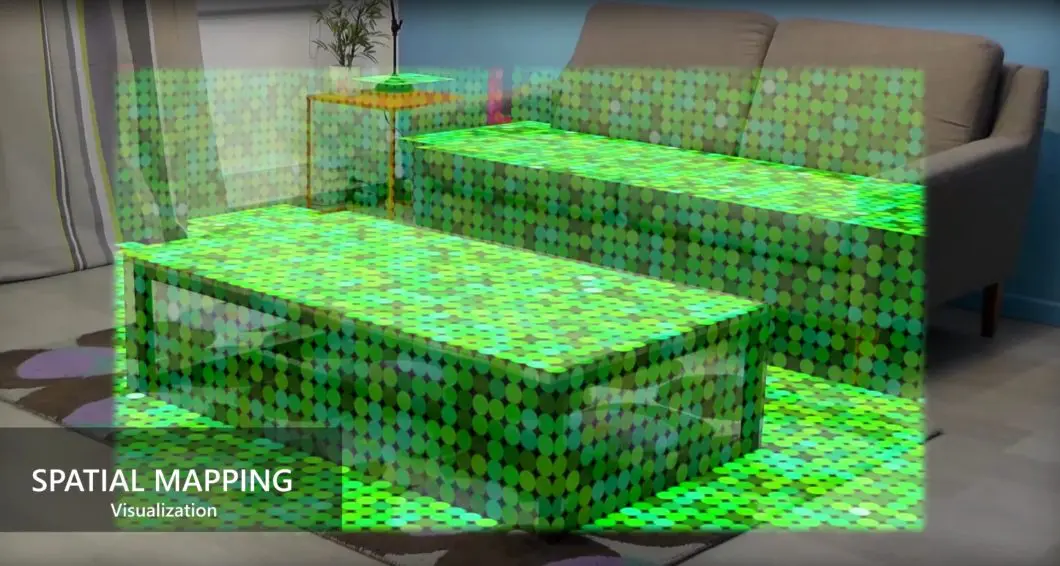
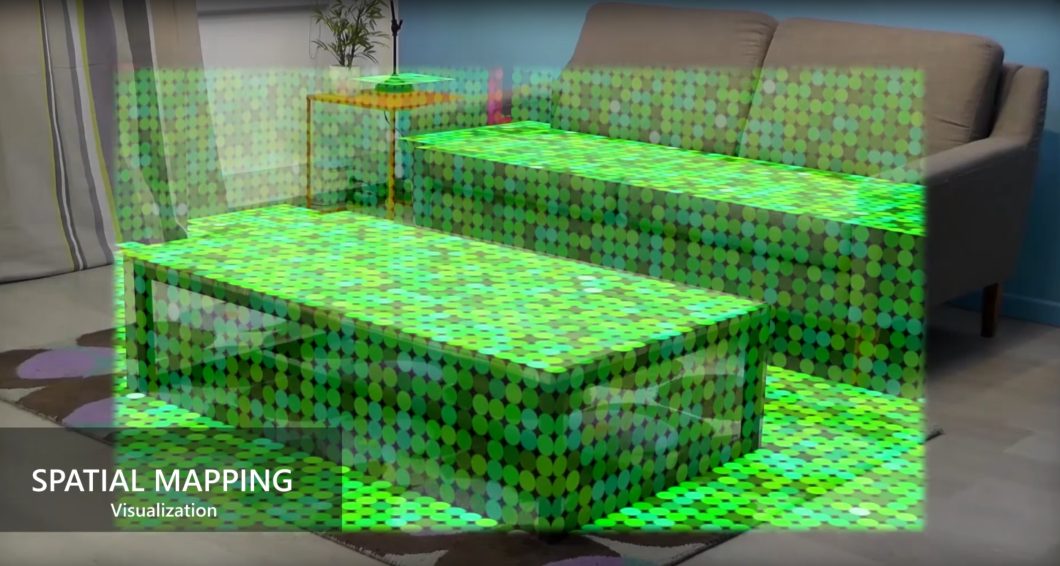
Immersive Object Recognition and Interplay
Creating absolutely immersive augmented actuality and digital actuality experiences requires a foundational understanding of object detection and interplay. These applied sciences let customers simply work together with digital objects as in the event that they have been bodily current. Thus, offering a brand new degree of engagement and realism.
Within the following, we are going to look into among the hottest AR/VR methods that push the boundaries of immersive object interplay and recognition.
Occlusion-Conscious Rendering
For an augmented actuality expertise to be credible, digital issues should precisely work together with and obscure real-world objects. Subsequently, we’d like exact depth estimates and scene comprehension to find out which objects are in entrance of others and modify the show appropriately.
This may be achieved utilizing depth-sensing cameras for stereo imaginative and prescient, and learning-based approaches.
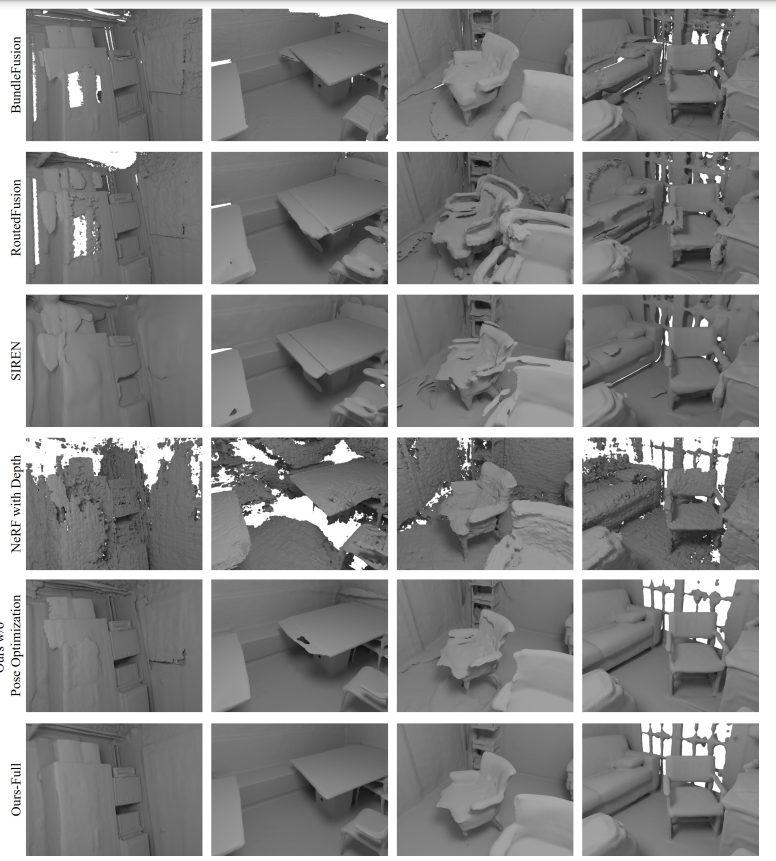

Actual-time Object Manipulation
Enabling customers to choose up, transfer, and work together with digital objects as in the event that they have been bodily current is vital in participating AR/VR experiences. This requires correct object recognition, pose estimation, real-time physics simulation, and key methods like collision detection and response, greedy and manipulation methods, and haptic suggestions.
Floor Detection and Monitoring
Precisely detecting and monitoring real-world surfaces permits digital components to be successfully connected to and interacted with. Thus, creating pure and intuitive interactions in AR.
Multimodal Object Recognition and Interplay
Combining data from a number of sensors (cameras, LiDAR, IMU) can result in extra strong and correct object recognition and interplay, particularly in difficult environments. For instance, LiDAR information can present correct depth data, whereas cameras provide wealthy texture and colour particulars.
Object Properties and Conduct Recognition
Recognizing the properties and conduct of objects (e.g., rigidity, weight, fragility) can additional improve interplay realism. This may be achieved by analyzing object shapes, supplies, and previous interactions via machine studying methods.
Actual-time Gesture Recognition
Actual-time gesture recognition sits on the coronary heart of intuitive and pure interactions in AR/VR. Deciphering hand and physique actions, permits customers to manage digital objects, navigate environments, and specific themselves inside these immersive worlds. Within the following, we are going to dive deeper into the applied sciences and purposes shaping this thrilling subject:
Hand Pose Estimation
The muse of gesture recognition lies in precisely understanding the pose and configuration of the hand. That is achieved via numerous methods:
- Hybrid Approaches. Marker-based and markerless methods are mixed, usually utilizing markers for preliminary calibration and coarse monitoring. Markerless strategies present finer-grained particulars of finger actions.
- Marker-Primarily based Monitoring. With out pc imaginative and prescient, bodily, small markers are connected to gloves or fingers to measure and monitor their actions. Whereas easy and dependable, it may be cumbersome and restrict pure hand gestures.
- Markerless Monitoring. Leverages pc imaginative and prescient algorithms to research hand poses straight from digital camera photographs. Deep studying fashions educated on huge datasets of hand photographs obtain spectacular accuracy however require important computational sources.
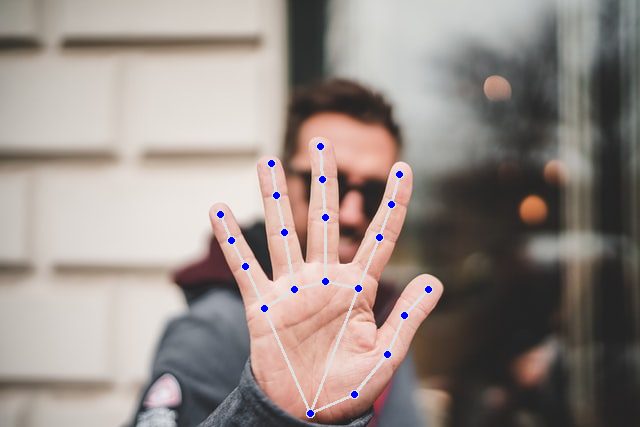

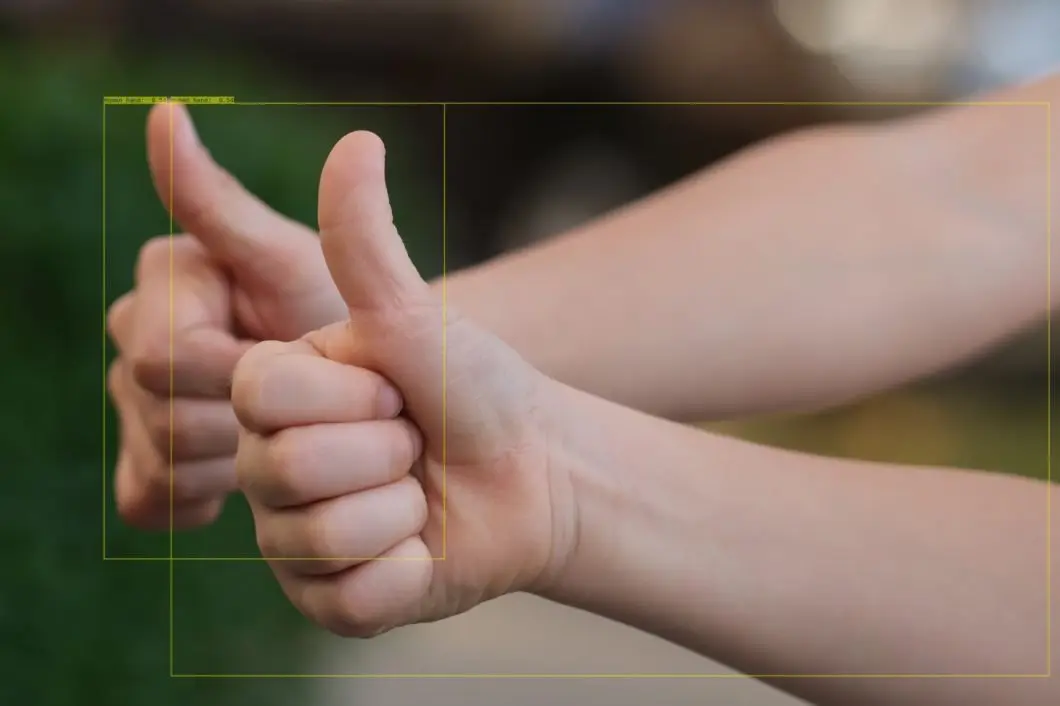
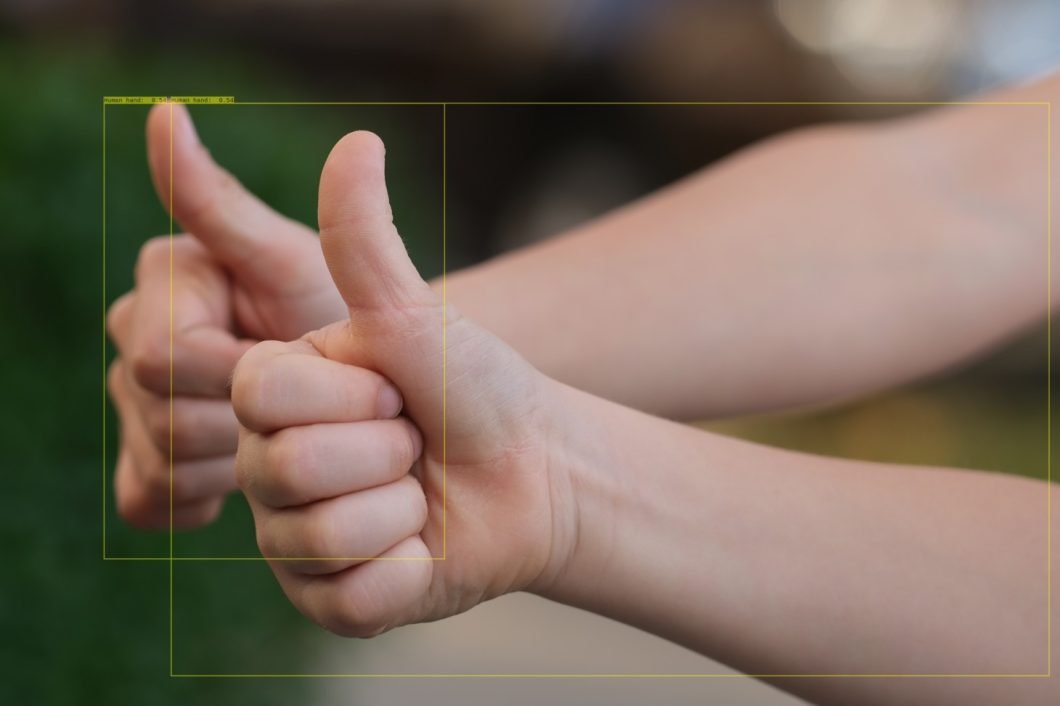
Gesture Recognition and Classification
As soon as hand poses are estimated, gestures must be recognized and categorised based mostly on their which means. This entails:
- Gesture Libraries. Predefined units of widespread gestures with related hand poses are used for easy recognition duties.
- Machine Studying Fashions. Deep studying algorithms educated on massive datasets of labeled hand gestures can precisely acknowledge advanced and dynamic gestures. Different strategies monitor key factors to grasp motion.
- Context-Conscious Recognition. Considers the encompassing atmosphere and person intent to enhance gesture recognition accuracy, particularly when a number of interpretations are attainable.
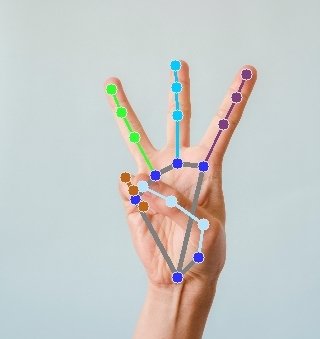

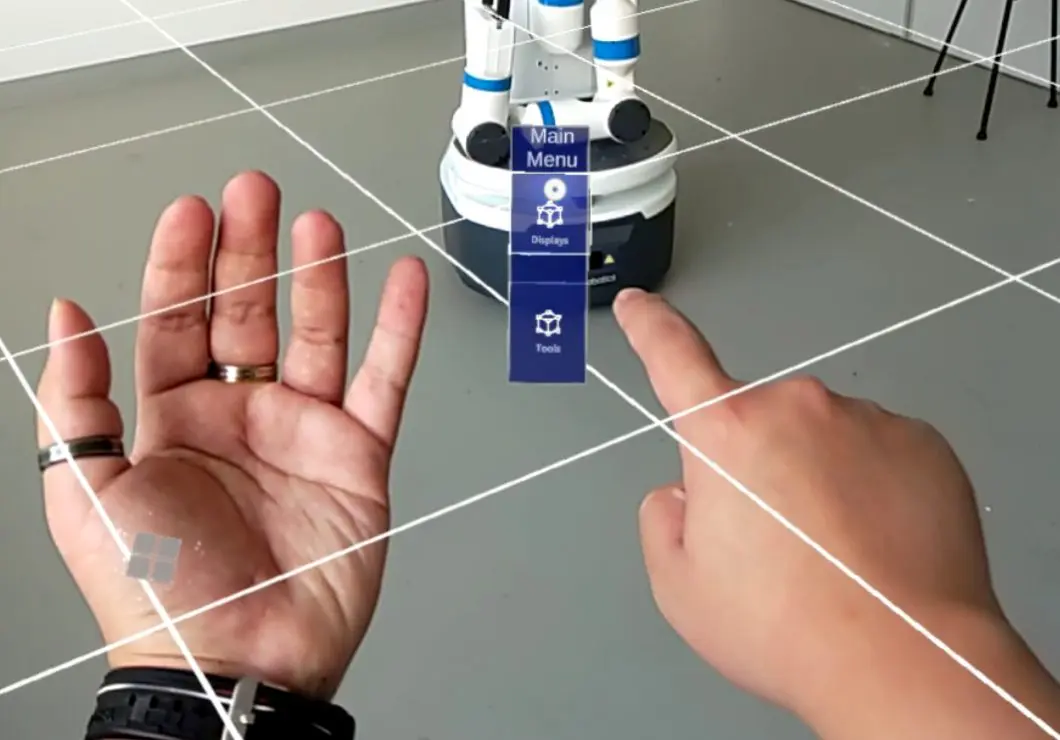
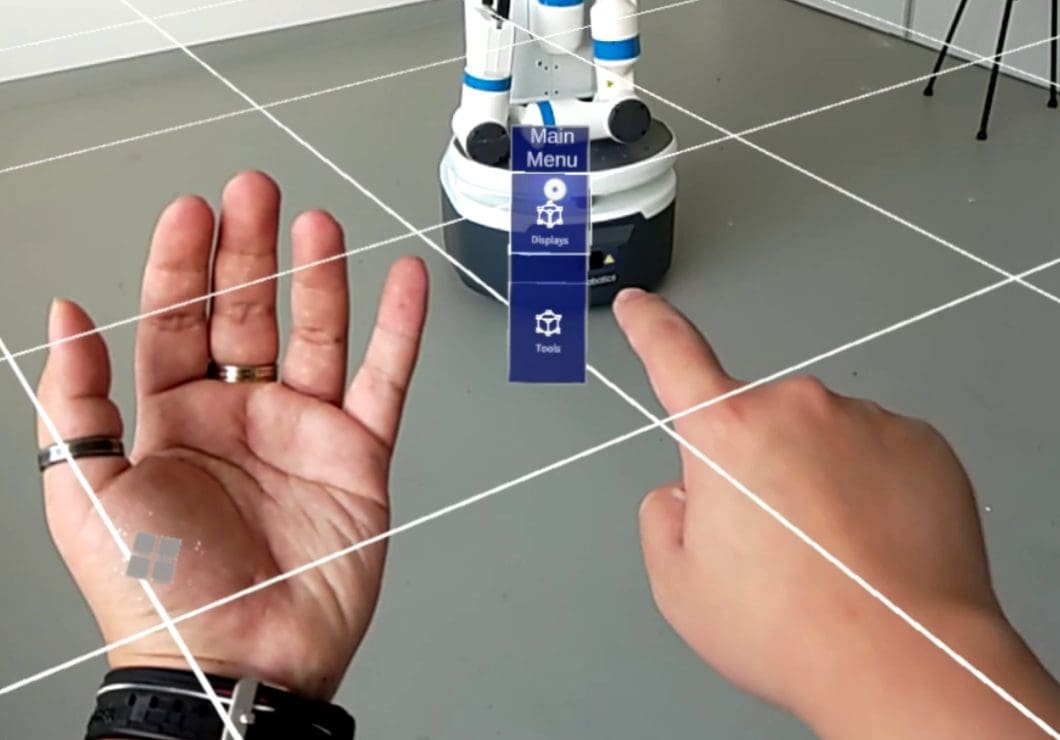
Simultaneous Localization and Mapping (SLAM)
A key part of AR/VR is SLAM (Simultaneous Localization and Mapping). This permits robots or clever gadgets to trace their location inside an atmosphere and create a map of it on the identical time. SLAM methods are obligatory for navigating advanced environments and sustaining spatial consciousness in hectic circumstances.
- Visible SLAM. Leverages cameras to seize visible information and extract options like edges and corners. Algorithms then use these options to estimate the machine’s pose (place and orientation) and replace the map accordingly.
- LiDAR SLAM. Employs LiDAR sensors to measure distances to things and generate 3D level clouds of the atmosphere. This makes extra correct and resilient mapping attainable, significantly in low-texture or poorly mild conditions.
- Fusion-based SLAM. Combines information from a number of sensors (cameras, LiDAR, IMUs) to attain extra strong and correct monitoring and mapping, significantly in difficult circumstances the place particular person sensors may battle.
Enhanced Person Interfaces with Laptop Imaginative and prescient
Along with serving to AR and VR customers comprehend their environment, pc imaginative and prescient can be reworking the way in which these immersive experiences permit customers to work together with digital parts. Builders could design extra intuitive, pure, and contextually conscious person interfaces (UIs) by using insights obtained from visible information.
Right here’s an inventory of among the most necessary methods:
Eye Monitoring
Automated eye monitoring goes past eye gaze detection, understanding the place customers are wanting and for a way lengthy. This data can be utilized to:
- Focus Consideration. VR programs can direct rendering sources in the direction of areas the place customers are fixating, enhancing visible constancy and decreasing computational load.
- Adapt Content material. That is performed by adjusting the content material, degree of element, or narrative based mostly on the place the person is wanting. Thus, making a extra personalised and interesting expertise.



Gaze-based Interplay
Constructing upon eye monitoring, gaze-based interplay eliminates the necessity for bodily controllers or conventional UI components. Customers can straight work together with digital objects or menus by taking a look at them and performing predefined actions like dwell-time choice, gaze gestures, or iris monitoring. This creates a extra immersive and hands-free interplay expertise.
Dynamic UI Overlays
Static UI overlays in AR can disrupt the pure view of the true world. Laptop imaginative and prescient allows dynamic overlays that:
- Adapt to the Setting. Overlays can alter their measurement, place, and look based mostly on the encompassing objects and scene context. Thus, decreasing visible muddle and sustaining person focus.
- Carry out Occlusion-Conscious Rendering. Digital components will be selectively hidden or rendered transparently when occluded by real-world objects, guaranteeing a seamless mixing of the bodily and digital worlds.
Facial Expression Recognition
Understanding person feelings via facial expressions can improve AR/VR interfaces in a number of methods:
- Adaptive Interactions. Digital avatars or programs can reply empathetically to person feelings, offering personalised suggestions or adjusting the expertise accordingly.
- Accessibility for People With Disabilities. Facial emotion recognition can be utilized to develop different communication strategies for people with speech or motor impairments.
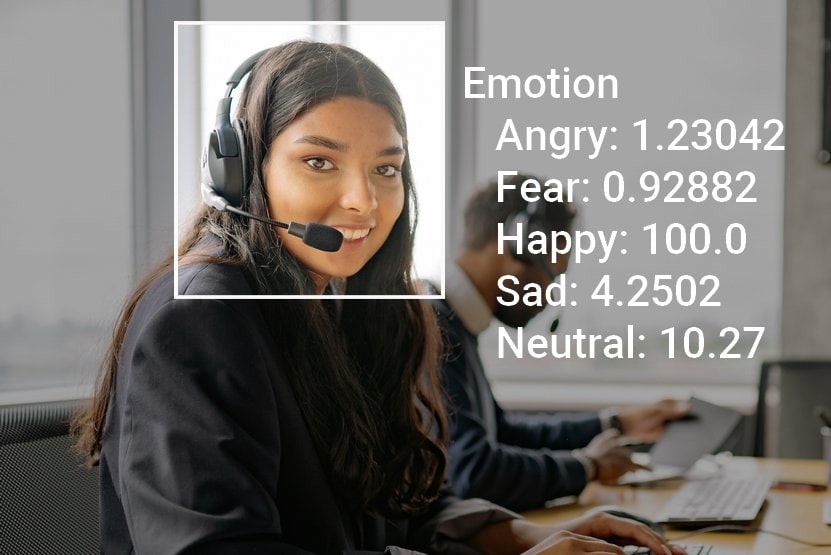

Challenges in Laptop Imaginative and prescient for Digital and Augmented Actuality
Whereas pc imaginative and prescient opens a world of thrilling prospects in AR/VR, important challenges stay:
- Computational Limitations. Actual-time processing of visible information, particularly for advanced eventualities with high-resolution photographs and a number of sensors, requires important computational sources. Battery life and machine overheating can change into limitations in cell AR/VR purposes.
- Lighting and Environmental Variations. Algorithmic mannequin efficiency can degrade considerably below various lighting circumstances, shadows, and occlusions. Correct object recognition and monitoring change into difficult in poorly lit or cluttered environments.
- Occlusion Dealing with. Precisely dealing with occluded objects and guaranteeing seamless transitions when real-world objects partially obscure digital components stays a technical hurdle.
- Information and Privateness Issues. Coaching strong pc imaginative and prescient fashions requires huge quantities of labeled information. Thus, elevating issues about information privateness and potential biases within the dataset.
Improvements Pushing Ahead
Regardless of these challenges, researchers and builders are nonetheless pushing the boundaries of pc imaginative and prescient for AR/VR in the true world:
- Edge Computing. Offloading computationally intensive duties from gadgets to the cloud or edge networks reduces the processing burden on AR/VR gadgets. In flip, enhancing efficiency and battery life.
- Light-weight Deep Studying Fashions. Creating smaller and extra environment friendly deep studying architectures optimizes efficiency on resource-constrained gadgets with out sacrificing accuracy.
- Sensor Fusion. Combining information from a number of sensors (cameras, LiDAR, IMU) offers richer environmental data, resulting in extra strong and correct monitoring, mapping, and object recognition.
- Artificial Information Era. Producing reasonable artificial information with managed variations in lighting, backgrounds, and occlusions can increase real-world datasets and enhance algorithm robustness.
- Privateness-Preserving Strategies. Safe enclaves and differential privateness strategies can shield person information throughout assortment, processing, and storage, addressing privateness issues in pc imaginative and prescient purposes.
Sensible Purposes of AR/VR Throughout Industries
Video Video games
In AR gaming, the true world is enhanced with digital overlays, permitting avid gamers to work together with the digital atmosphere. This know-how introduces components like geolocation-based challenges, bringing gameplay into the streets and public areas. However, VR gaming transports gamers into totally digital worlds, providing a degree of immersion the place customers really feel current within the recreation atmosphere.
The usage of movement controllers, haptic suggestions, and reasonable simulations enhances the gaming expertise, making it extra participating and lifelike.
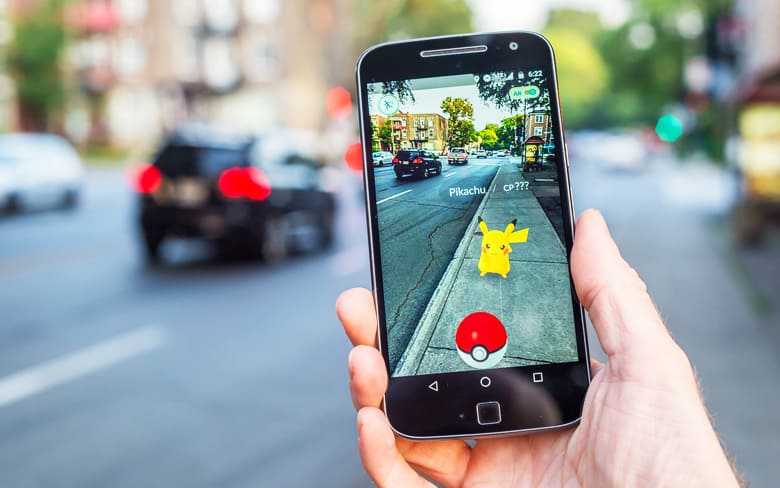

Training and Coaching
Augmented Actuality (AR) makes use of pc imaginative and prescient to exactly map and overlay digital data onto real-world academic content material, enabling college students to work together with augmented content material. In Digital Actuality (VR), intricate pc imaginative and prescient programs create immersive, artificial environments by monitoring person actions, gestures, and interactions. These applied sciences use advanced CV fashions for real-time object recognition, spatial mapping, and exact alignment of digital components.
For instance, digital environments permit structure college students to discover and manipulate three-dimensional architectural fashions, offering a sensible sense of scale and proportion. College students can just about stroll via buildings, visualize completely different design components, and expertise how areas come collectively.
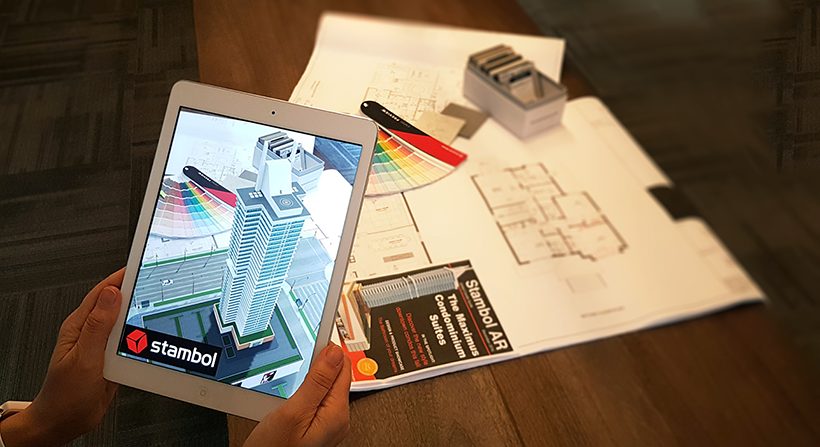

Retail and Product Visualization
In retail purposes, the implementation of AR/VR applied sciences goes past digital try-on experiences, taking part in an important position in reworking the general procuring journey. These applied sciences provide immersive and interactive options like augmented product shows and digital showrooms. Prospects can discover detailed product data, examine choices, and expertise a digital walk-through of the shop.
Moreover, AR purposes present real-time details about merchandise, promotions, and personalised suggestions, making a dynamic and interesting procuring atmosphere. This not solely enhances the shopper expertise but additionally offers retailers with precious insights into shopper preferences and conduct.


Manufacturing and Design
In manufacturing, AR overlays provide real-time steering and data for duties akin to meeting, upkeep, and design validation. Employees can entry essential information and directions overlaid of their bodily atmosphere, enhancing effectivity and accuracy. These applied sciences facilitate enhanced coaching packages by permitting staff to visualise advanced processes and equipment just about.
Furthermore, AR/VR purposes contribute to design validation, enabling engineers to evaluate and refine prototypes in a simulated atmosphere earlier than bodily manufacturing. This integration enhances total productiveness, reduces errors, and ensures a extra streamlined and efficient manufacturing workflow.
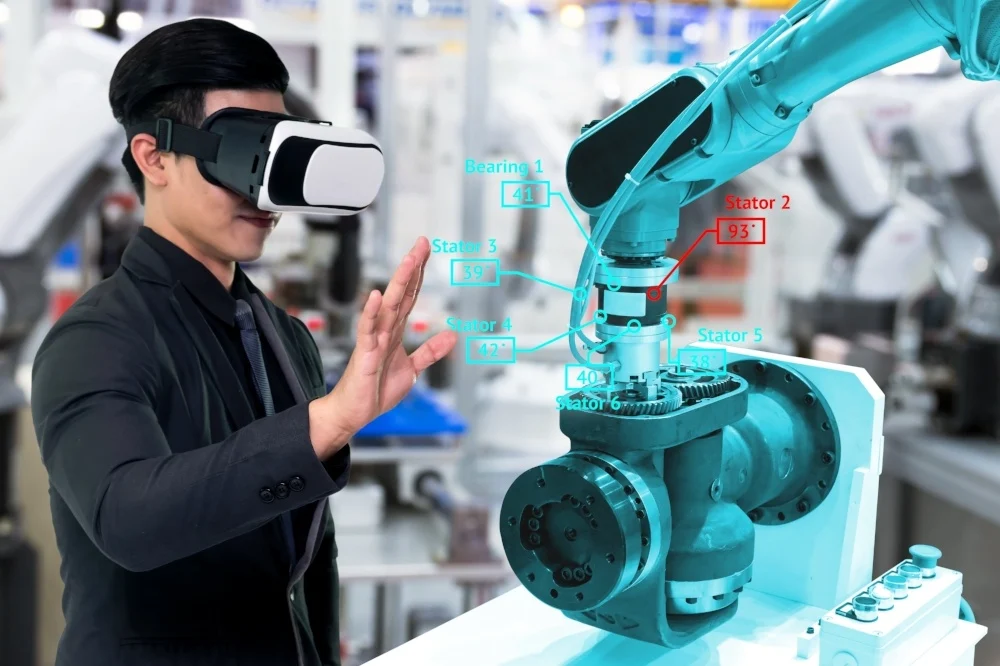

Healthcare
Within the healthcare sector, the combination of AR/VR options performs a pivotal position in distant surgical procedure help, offering surgeons with immersive and exact visualizations that improve their means to carry out procedures from a distance. Moreover, AR/VR is instrumental in rehabilitation workouts, providing interactive and personalised simulations that assist sufferers of their restoration.
Medical coaching additionally advantages, as these applied sciences allow reasonable and immersive simulations for coaching healthcare professionals. The exact monitoring and object recognition capabilities contribute to the accuracy and effectiveness of those purposes. These developments are seen in affected person care, surgical procedures, and medical training.
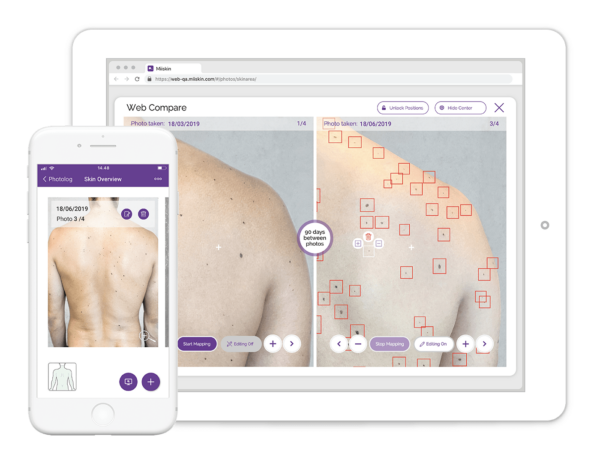

Collaborations and Integration with AI
The synergy between pc imaginative and prescient and synthetic intelligence (AI) is propelling developments in AR/VR at an unprecedented tempo. By combining their respective strengths, these applied sciences are unlocking new ranges of notion, understanding, and interplay inside immersive experiences.
Machine studying sits on the coronary heart of this collaboration, empowering pc imaginative and prescient algorithms to:
- Be taught From Huge Datasets. Fashions educated on massive collections of labeled visible information can acknowledge objects, monitor actions, and interpret gestures with growing accuracy.
- Adapt to Various Environments. By studying from completely different lighting circumstances, backgrounds, and object variations, algorithms change into extra strong and generalize properly to unseen eventualities.
- Cause and Make Selections. AI-powered CV can establish objects and purpose about their relationships, interactions, and implications inside the AR/VR atmosphere.
Examples of Collaborative Innovation:
- Actual-Time Scene Understanding. AI can analyze visible information in real-time to grasp the spatial structure, objects, and actions occurring inside the AR/VR scene. This permits dynamic adaptation of digital components and content material based mostly on the context.
- Personalised AR Experiences. AI algorithms can personalize AR experiences by studying person preferences and tailoring content material, interactions, and data supply to particular person wants and pursuits.
- Emotionally Clever VR Avatars. AI can analyze person facial expressions and voice patterns to create digital avatars that reply empathetically and dynamically to adapt their conduct to person feelings.
- Predictive Upkeep in AR Purposes. By analyzing visible information from industrial gear, AI-powered pc imaginative and prescient can predict potential failures and information technicians via AR-assisted restore processes.
The Greatest Digital Actuality and Augmented Actuality Open-Supply Tasks
The open-source neighborhood performs a pivotal position in advancing pc imaginative and prescient for AR/VR. By providing freely accessible sources like platforms, libraries, and datasets, open-source empowers builders and researchers to create groundbreaking purposes.
Listed here are some noteworthy contributions from the neighborhood for the open-source AR/VR instruments:
- OpenCV. A versatile library for real-time pc imaginative and prescient purposes. OpenCV is often used for picture processing, object monitoring, and AR/VR purposes.
- ARKit. Apple’s framework for constructing AR experiences on iOS gadgets offers entry to digital camera, LiDAR, and movement monitoring capabilities.
- ARCore. Google’s framework for constructing AR experiences on Android gadgets provides comparable functionalities to ARKit.
- Stanford’s SUN3D. A big-scale dataset of photographs with corresponding 3D scene annotations is effective for coaching object recognition and scene understanding algorithms.
- Matterport3D. A complete assortment of 3D scans of indoor environments, helpful for enabling computer systems to develop and check spatial mapping and navigation algorithms in AR/VR.
- ReplicaNet. A dataset of synthetically generated photographs and 3D fashions, providing a managed atmosphere for coaching and evaluating pc imaginative and prescient algorithms below numerous circumstances.
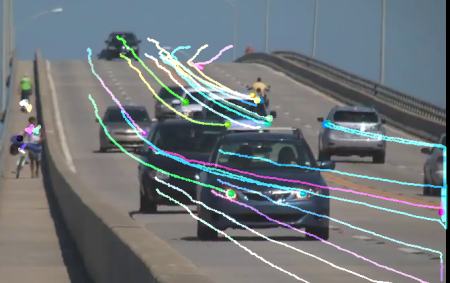

Traits in Laptop Imaginative and prescient for AR and VR
The way forward for pc imaginative and prescient in AR/VR is brimming with thrilling prospects:
- Hyper-Lifelike Experiences. Developments in rendering, object recognition, and scene understanding will create just about indistinguishable blends of bodily and digital worlds.
- Affective Computing. VR/AR programs will acknowledge and reply to customers’ feelings via facial expressions, voice evaluation, and physiological information, resulting in extra personalised and interesting experiences.
- Blended Actuality (MR). The traces between AR and VR will proceed to blur, creating actual and digital environments with more and more refined interactions.
- Ubiquitous AR. As AR gadgets change into smaller and extra built-in into on a regular basis wearables, CV will allow interactions with the digital world.
To wrap up, the position of pc imaginative and prescient in AR/VR is the muse for reasonable and charming experiences. With its capabilities starting from gesture management and object identification to real-time interplay and spatial mapping, the atmosphere is altering how we interact with it. With its means to unravel enduring points, promote open-source collaboration, and embrace steady innovation, pc imaginative and prescient will proceed to push the boundaries of the digital world. This can change the course of real-life human-computer interplay and upend a large number of industries.
Actual-World Laptop Imaginative and prescient For Companies
Our pc imaginative and prescient platform Viso Suite is the end-to-end answer for enterprises to construct and scale real-world pc imaginative and prescient. Viso Suite covers your complete AI lifecycle, from information assortment to safety, in a state-of-the-art platform. To study extra, guide a demo with us.
